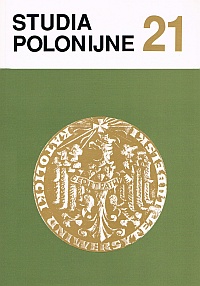“The Polish Emigrant's Week” in Poland before World War II – its course and significance
Main Article Content
Abstract
The article discusses the causes, course and significance of the celebrations of “The Polish Emigrant's Week” that was organised on the whole territory of Poland in June 1930. The aim of this event, which had been prepared as a large scale one by committee in Warsaw that had numerous branches in the provinces, was: 1) raising the consciousness of the Polish society with respect to the proportions and significance of emigration from Polish lands to different countries. It also stressed the need of and profits from maintaining contacts and bonds between the several million mass of Poles living abroad and their homeland for both Poland and the emigrants; 2) raising funds for the construction of the Polish Emigrants’ Home in Warsaw that would concentrate state and community institutions working for the welfare of emigrants leaving Poland. The course of the “Emigrant's Week” is shown on the basis of archival records and press articles, and it presents the activity of State, community and Church officials in propaganda, cultural-educational and financial fields. Special attention is focused on the course of the “Emigrant's Week” in the area of East Małopolska (Little Poland), i. e. in the Lvov, Stanisławów and Tarnopol provinces where the phenomenon of emigration was especially intensive and complicated because of the ethnic composition of the population inhabiting that area. Poles, Ukrainians and Jews joined the work on the “Emigrant's Week”. The basic task here was to raise funds necessary to complete the construction of the Emigration Home in Lvov for emigrants belonging to all the three nations. The idea of building the Emigration Home had its roots in the necessity to secure protection against exploitation by illegal emigration agents to the masses of emigrating people. It was also supposed to provide help in gaining information about the immigration opportunities in different countries, about the social, economic and legal conditions prevailing in them, job markets for emigrants, formal requirements connected with obtaining passports, booking ship or railway tickets as well as securing decent conditions of transport to the border (night’s lodging, food) and during the travel to one’s destination. The Home was opened and blessed in 16 June 1930. On the territory of East Małopolska the action was repeated, albeit on a smaller scale, as “Emigrant's Day”, in the autumn of 1931.

